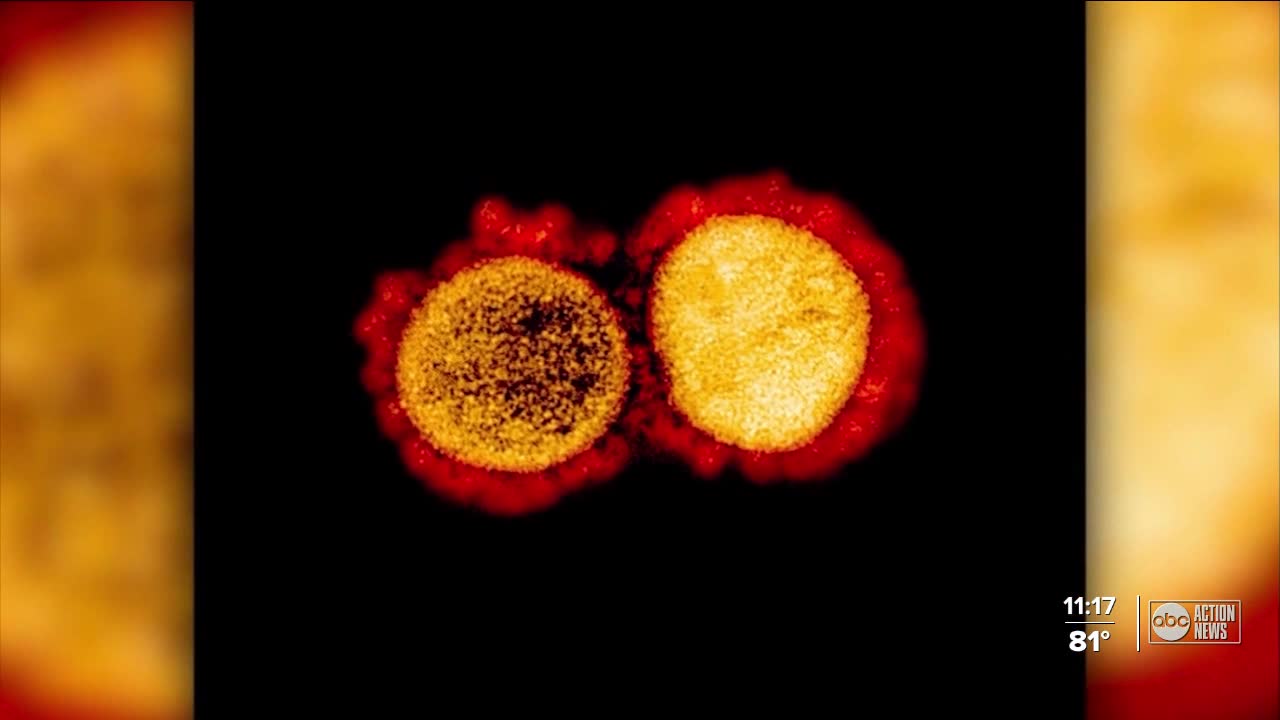TAMPA, Fla. — Medical experts across the state are working to track variants of the coronavirus. One raising concern for its transmissibility is the Delta variant.
“Previous variants and the original strain obviously were able to transmit quite well but the Delta variant is able to transmit even more easily. Where before we would kind of say 15 minutes in the same space with someone was kind of our benchmark now it’s much lower,” said Dr. Andrew Myers.
Myers is the director of in-patient COVID-19 care at Tampa General Hospital and an associate professor of internal medicine at the University of South Florida. The hospital has been sequencing samples. Myers said they’ve seen a handful of the Delta variant.
“There was a transition to the Alpha variant, or the British variant, and so we were seeing mostly that. We have seen some of the P1 variant and then the Delta variant is what is starting to ramp up,” Myers said. “We haven’t seen a ton of that but just based on what we’re seeing across the country I think we’ll be seeing a lot more of that in the coming weeks.”
The CDC says the national proportion of the Delta variant is predicted to increase from 9.5 percent from the two-week period ending June 5, to 20.6 percent for the two-week period ending June 19 to become the second most prevalent lineage. The agency data indicates it’s more transmissible than the Alpha variant, and preliminary data from the UK indicates there may be an increased risk for hospitalization, though more studies are needed.
“We’re also seeing pretty decent competition from this Gamma, this Brazilian one, as well. So these are the two I think over the next three to four weeks are gonna become the dominant variants we see here in the state of Florida and nationwide,” said Thomas Unnasch, Ph.D., a distinguished university professor at USF’s College of Public Health.
He said some numbers show a reproductive rate on a level of infectivity with smallpox and whooping cough.
Across the state, Dr. David Andrews is working to track variants. He’s the vice chief of pathology laboratories at Jackson Health System and an associate professor of pathology and laboratory medicine at the University of Miami Miller School of Medicine.
“When you see it it’s a wake-up call but again why would we be any different than the rest of the country?” said Dr. Andrews
With concern over the Delta variant, Andrews said they turned to their cancer sequencing facility to help take a snapshot of the last few weeks.
“I don’t think we would be any different than the rest of the country in terms of the Delta variant expanding particularly almost exclusively actually in the unvaccinated population these are the people who are really vulnerable to this rapidly transmissible lineage,” said Dr. Andrews.
Andrews said they saw predominately the Alpha variant, about a quarter of samples reflecting the P1 variant and two samples of the Delta variant.
“I expect that in populations that we already know that are vaccine-hesitant to see an emergence or a growth in the prevalence of this strain. And let me just say also the other ones have increased, the UK variant strain the B117 also is highly transmissible as is the Brazilian P1. So I think all of these variants of concern and interest will continue to expand in the unvaccinated population,” said Andrews.
The latest data from the Florida Department of Health shows a vaccination rate for Floridians at 57 percent, up from 56 percent in the previous report. It also shows new case positivity rose from 3.3 percent to 3.8 percent and cases from 10,629 to 11,873.
“Surveillance of COVID-19 has not changed. The Department continues to surveil and respond to COVID-19 and encourages individuals to get vaccinated to protect themselves,” stated the agency.
The CDC said available data indicates vaccines authorized in the US are effective against this variant.
“A recent study from the UK indicates that the Pfizer and AstraZeneca vaccines are greater than 90% effective in preventing hospitalization in individuals infected with the B.1.617.2 variant. As such, CDC strongly recommends everyone 12 years of age and older to get vaccinated as soon as possible,” the CDC stated.
Dr. Myers said most of the people they see in the hospital are not vaccinated, or people who are immunocompromised and didn’t mount an antibody response to the vaccine.
“We’d love for everyone to be vaccinated. The more contagious a virus is the more people we need to have vaccinated because there’s an inverse relationship between how contagious a virus is and what percent of people need to be vaccinated to keep it from transmitting,” Myers said.
Dr. Myers said there needs to be a higher rate of people being vaccinated.




